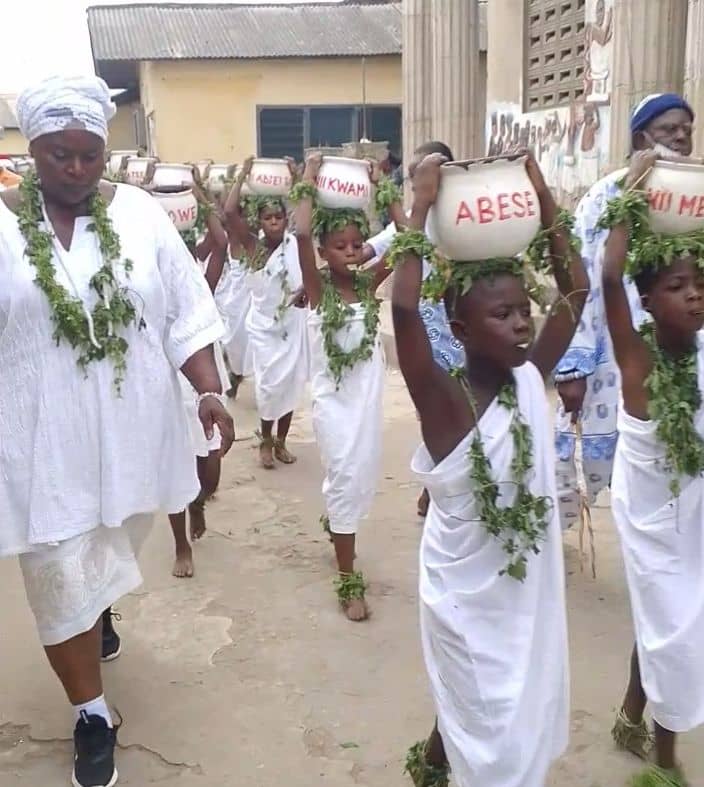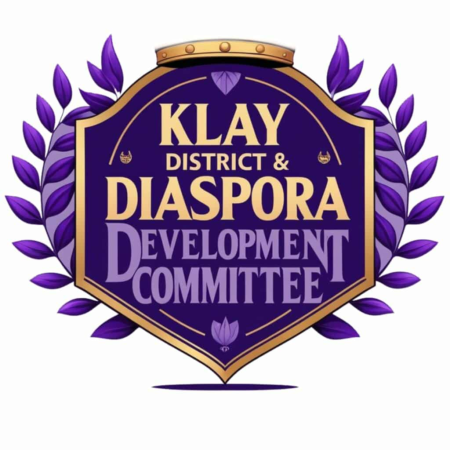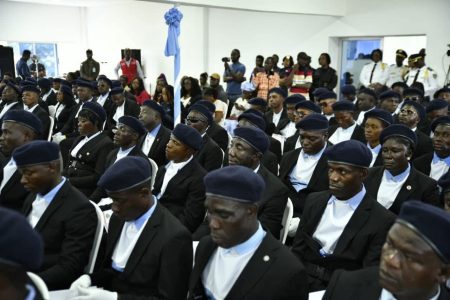The Afrimi Yele Yeli festival, a vibrant tapestry of tradition and spirituality, commenced in the Abese La Adonten Division with the sacred Water Fetching Rites. This pivotal ceremony, held on Sunday, July 13th, drew a multitude of witnesses to the Abese La Adonten Palace, eager to observe the time-honored customs of the Abese people. At the core of the rites was the procession to the revered Jubilee Stream, led by a select group of young virgins, both boys and girls, symbolizing purity and the promise of renewal. Clad in white and adorned with medicinal herbs, these chosen children embarked on their spiritual journey, their rhythmic movements accompanied by traditional drumming, chants, and evocative war songs, echoing the enduring strength and resilience of the community. The act of fetching the holy water, repeated three times according to custom, represents a profound spiritual cleansing, a renewal of ancestral blessings, and a symbolic declaration of readiness to embrace the ensuing festival activities in honor of the Afrimi Deity.
Upon the children’s return to the palace, their safe completion of the rites was formally announced to the Chief and elders. Following confirmation of their well-being, solemn prayers were offered to God and the ancestors, expressing gratitude for their protection and guidance throughout the sacred journey. The Abese La Adonten Division, a prominent clan within La, holds a distinguished reputation for its unwavering cultural pride and deeply ingrained traditions. The Afrimi Yele Yeli Festival, the first in a series of sacred observances culminating in the grand Homowo Festival, holds profound spiritual significance, reflecting the Ga calendar and reaffirming the La people’s unwavering commitment to preserving their cultural and ancestral heritage.
Beyond the ritualistic aspects, the Afrimi Yele Yeli festival serves as a sacred interlude for reflection, thanksgiving, and invocation. It is a time of spiritual introspection, seeking divine favor and protection for the future. Under the esteemed leadership of Nii Kwade Okropong I, the rites continue to embody clan identity, continuity, and the collective strength of the Abese people. The festival transcends mere celebration; it is a testament to the enduring power of tradition and the unwavering connection to ancestral roots.
Following the Water Fetching Rites, the spiritual observance continued on Tuesday with the symbolic sprinkling of Otor, a mixture of mashed yam and red oil. The Chief of Abese La Adonten Division, accompanied by elders and Asafo groups, embarked on a procession through La township, visiting shrines and households to perform this sacred act. This offering serves to honor lesser deities and ancestral spirits, acknowledging their integral role in the spiritual well-being of the community. This ritual reinforces the interconnectedness between the living and the ancestral realm, demonstrating respect and seeking continued blessings.
Later that afternoon, a durbar was convened at Kwakwranya We, providing a platform for communal gathering and discourse. Nii Kwade Okropong I, flanked by elders and representatives from other La clans, addressed the assembly, delivering a poignant message directed particularly to the youth. He emphasized the importance of avoiding the pitfalls of drug and substance abuse, aligning with the festival’s 2025 theme: “Empowering Ghanaian Youth: Breaking the Chains of Drug Abuse through Cultural Heritage and Community Support.” This message underscored the festival’s commitment not only to preserving tradition but also to addressing contemporary social challenges affecting the community.
As the day progressed, anticipation built for the return of the Afrimi War Deity to La township. Around 5:00 PM, the Chief, elders, and assembled guests gathered to welcome the deity, marking its homecoming with libations and other traditional rites. This act of reverence honors the deity and invokes its blessings upon the community. These sacred rituals, far from being mere ceremonies, are essential spiritual cornerstones leading up to the grand Homowo Festival. They serve to renew divine favor, honor the ancestors, and fortify the cultural and spiritual identity of the La people.
The Afrimi Yele Yeli festival stands as a testament to the enduring power of tradition and the unwavering commitment of the La people to preserving their cultural heritage. From the sacred Water Fetching Rites to the symbolic sprinkling of Otor and the welcoming of the Afrimi War Deity, each ritual plays a vital role in reaffirming the spiritual bonds that unite the community. The festival serves not only as a celebration of the past but also as a call to action for the future, encouraging the youth to embrace their cultural identity and build a stronger, more resilient community.














